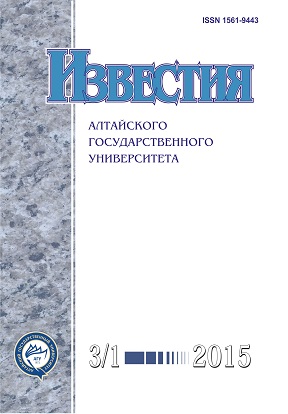Certain Aims and Principles of the Negative Methodology of Morality
Abstract
The article is devoted to the philosophical problem “Negative Methodology” which has not been sufficiently studied before. The Negative Methodology is developed by the author in the past as part of the cognitive forms of social consciousness. The attention in this article is given to the lack of a theoretical analysis of the negative features of the methodology in the field of morality. The article examines the most general aims of the negative methodology in the field of morality. The author reveals the practical importance of negative methodology in the sphere of negative morality. The author analyzes the six principles of the negative methodology in the field of morality which illustrates his logic.(You should not be conceited. You should not reject your predecessors’ achievement. You should not limit yourself by your own opinion. You should not try to please everyone. You should not break the measure. You should not rely only on the authority of moral activity.) The author’s arguments are based on extensive examples from the field of philosophy of science, history, physics and art. The paper represents a comparison of the negative moral guidance to both positive and negative regulations of religion. This knowledge may be useful for university teachers, undergraduates and postgraduate students, as well as all for those who are interested in the problems of morality and philosophy.
DOI 10.14258/izvasu(2015)3.1-32
Downloads
Metrics
References
Библия. Книги Священного Писания Ветхого и Нового завета. - М., 2001.
Паули В. Физические очерки. - М., 1987.
Коллингвуд Р. Идея истории: автобиография. - М.,1980.
Лесков Н. С. Сочинения : Т. 2. - М., 1958.
Соловьев В. С. Сочинения : в 2 т. - Т. 2. - М., 1989
Izvestiya of Altai State University is a golden publisher, as we allow self-archiving, but most importantly we are fully transparent about your rights.
Authors may present and discuss their findings ahead of publication: at biological or scientific conferences, on preprint servers, in public databases, and in blogs, wikis, tweets, and other informal communication channels.
Izvestiya of Altai State University allows authors to deposit manuscripts (currently under review or those for intended submission to Izvestiya of Altai State University) in non-commercial, pre-print servers such as ArXiv.
Authors who publish with this journal agree to the following terms:
- Authors retain copyright and grant the journal right of first publication with the work simultaneously licensed under a Creative Commons Attribution License (CC BY 4.0) that allows others to share the work with an acknowledgement of the work's authorship and initial publication in this journal.
- Authors are able to enter into separate, additional contractual arrangements for the non-exclusive distribution of the journal's published version of the work (e.g., post it to an institutional repository or publish it in a book), with an acknowledgement of its initial publication in this journal.
- Authors are permitted and encouraged to post their work online (e.g., in institutional repositories or on their website) prior to and during the submission process, as it can lead to productive exchanges, as well as earlier and greater citation of published work (See The Effect of Open Access).








